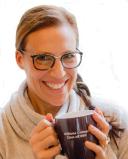Coronavirus Disease 2019
# This Is Our Shot
Up to half of clinicians are declining the vaccine. And I'm exhausted from it.
Posted January 2, 2021
It was December 31, 2020.
I woke up to a text from my sister.
Leah: Link to today’s article in the Los Angeles Times, “Some healthcare workers refuse to take COVID-19 vaccine, even with priority access.”
Jenny, you should write an opinion piece on this ASAP.
For LA Times. Get Joel (Stein) to help you send it in.
Me: I know this sounds crazy but I think I’m too emotionally exhausted to even wrap my head around it. Maybe I will work out and then give it a try.
Her: I think that’s a great first line by the way.
The roller coaster of doctoring during the pandemic has shifted me through more shapes than I knew I had in me. Not so long ago, it took all I had to balance a career as a full-time orthopedic surgeon with being a mother, wife, sister, daughter, and friend. Over these last nine months, I have taken the glass-half-full approach, with a Suzie Sunshine attitude that must be irritating to the people around me. An abundance of family time. A rising career in a solid organization. Financial security. Physical health, I dropped 40 pounds, found my abs for the first time in 10 years, and mastered my handstand. I have learned how to play chess. I mostly beat my 9-year-old son, and always lose to my husband. I have bathed in the purpose of my work as a doctor on the front lines and in my administrative work helping to redeploy surgeons to lean in to take care of patients sick with COVID-19. I even convinced my sister to start Grand Rounds Podcast with me, with the tagline “It took a pandemic to bring 2 sisters together to ask life’s big questions.”
COVID-19 has hit close. In my office alone, at least two surgeons, a nurse, five medical assistants, and one of our schedulers have gotten COVID-19. One young woman lost her father to COVID last spring. At the onset of the pandemic, we were told we were not allowed to wear masks, even if we had our own, for fear of spreading fear. I watched a senior (and now retired) administrator chase my distinguished 62-year-old partner down the hall, raising her voice, lacking any composure or grace, demanding that he remove his mask to see a patient who was actively coughing. During those weeks we had to hide our supplies of masks and gloves to prevent theft and hoarding. We were a day away from running out of sanitizer to clean the surfaces in our exam rooms.
Hospital visitor policy changed, family members and friends were no longer allowed to accompany patients (and only one adult per child). Our medical assistants were assigned to “greet” patients as they came into the building, for temperature screening, and to enforce the new visitor policy. A patient’s father had to be physically restrained and escorted away from the premises after physically threatening a petite greeter. I continued his child’s care and received a conflicted apology from the baby’s mother (and later his father) after the dust settled.
The first time a patient known to have COVID-19 came to see us in the clinic, pulses ran high. Layers of PPE (personal protective equipment). New protocols about how to safely move the people around to take care of our patient. The first time we accepted a COVID-19 patient in transfer to fix a hip fracture was more of the same nervous energy. We have since become accustomed to caring for patients with COVID-19 in our clinic and in the Emergency Room, on the hospital floors, and in the Operating Room. We are used to our colleagues and friends getting sick with the virus. Most of us have lost someone or come close, just as we were told we would.
As elective surgeries were postponed, resumed, and postponed again, helping to lead our department through the uncertainty and change was satisfying and exhausting all at once. Most patients understood and agreed. Some were angry in a way that felt disproportionate and exaggerated. As we converted many visits to virtual, phone, and video appointments ended with many patients asking me to stay safe and healthy, to protect myself and my family. But some did not. It became hard to predict which patients would lash out, but after the first few times, I realized that my feelings were not hurt. I was able to absorb their fear, deescalate, and continue my day. My work family bonded. Quarreling in the department all but ceased. All of the metaphors applied, we leaned in, had each other’s backs, supported each other, found humor when we could, and learned our new normal.
I was allowed to sign up for the vaccine in the first wave, because we were covering in the Emergency Room and actively caring for COVID-19 patients. Many of us got our shots with big emotion and fanfare. The hashtags abounded. #igottheshot #thisisourshot #notthrowingawaymyshot. I took my selfie. I flooded my social media bragging about the gratitude and emotions as we waited in line before getting vaccinated and sat getting observed afterward. I connected with surgeons and physicians, nurses and technicians, many of us with tears in our eyes, as we took in the experience. I had delayed side effects of body aches and fever for a few days. I strangely enjoyed my symptoms, so full of hope in all that the vaccine may bring us.
My 77-year-old mother is chomping at the bit waiting to get vaccinated. She has made it her business to learn more about COVID-19 than most physicians. She barrages me with articles, factoids, and facts about the pandemic. She was overjoyed when I got my appointment to get vaccinated. She actually shakes with anger at the misinformation and conspiracy theories about the vaccine and the pandemic itself. This is who I come from, my family, my person.
As I hear about physicians and clinicians and technicians on the front lines declining the vaccine, I cannot make sense of it. The news is full of stories today, essential workers who choose not to accept the vaccine. Half of the nurses in Riverside County (just east of Los Angeles) have declined the vaccine. My teenage daughter read this news and asked me to explain. I cannot. My head hurts when I try to wrap my mind around it. It has triggered my exhaustion. I am mentally and physically fatigued. From all of it. From shapeshifting and working, from doctoring and mothering during the era of COVID. As the experts begin to tabulate the effects of those declining the vaccinations, my head spins at the possible downstream effects. It feels like playing chess against my husband. For about three-fourths of the game, I have the patience and emotional fortitude to think through each and every move. Until, at some point, at some level, I get too tired to keep it up. And as I lose, I congratulate myself for marrying this smart man. I cannot find admiration for the decision to decline the vaccine even as I force myself to acknowledge the importance of the freedom to choose.
My beloved sister, I have completed my writing assignment to the best of my ability. As 2020 came to a close this week, I carry forward the memory of our losses and isolation, of our turmoil and our roller coaster. I welcome 2021, the vaccine, allowing my children to re-enter the world, and all that comes with it.




